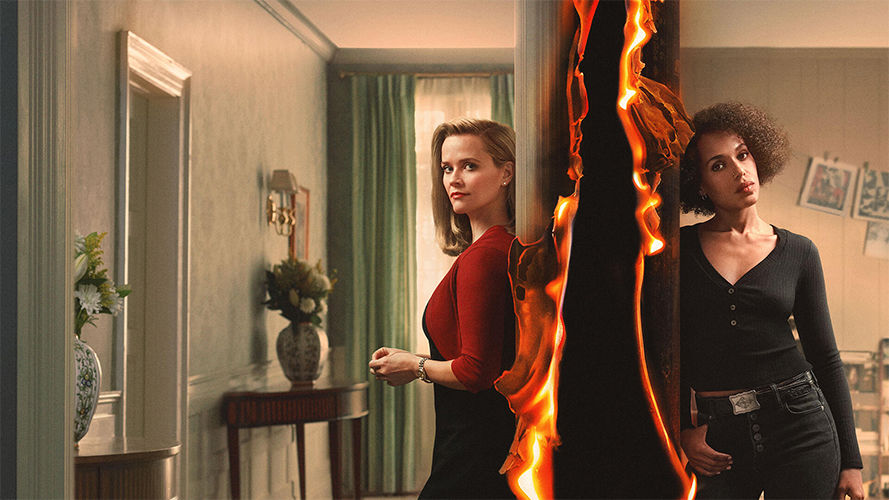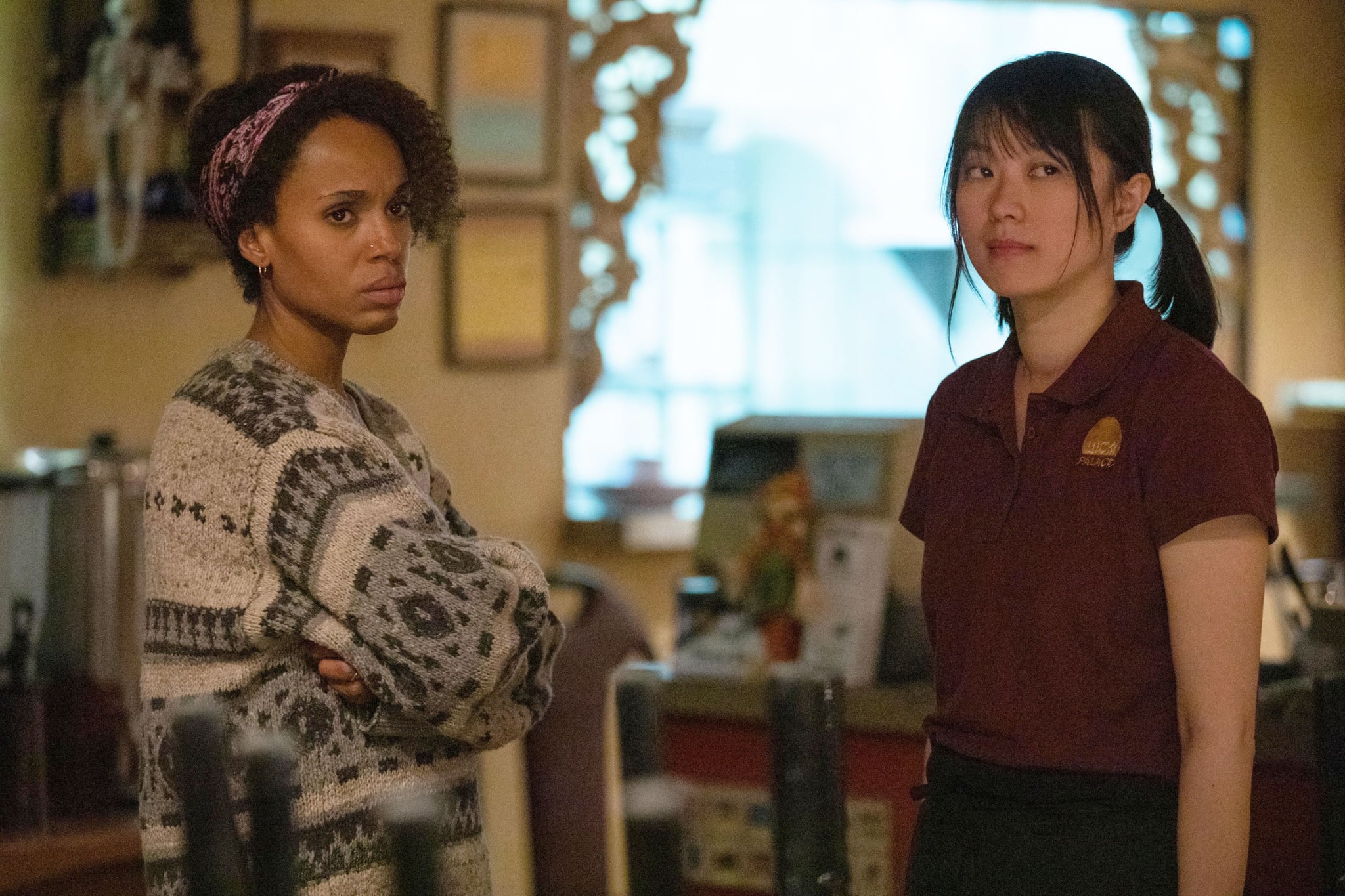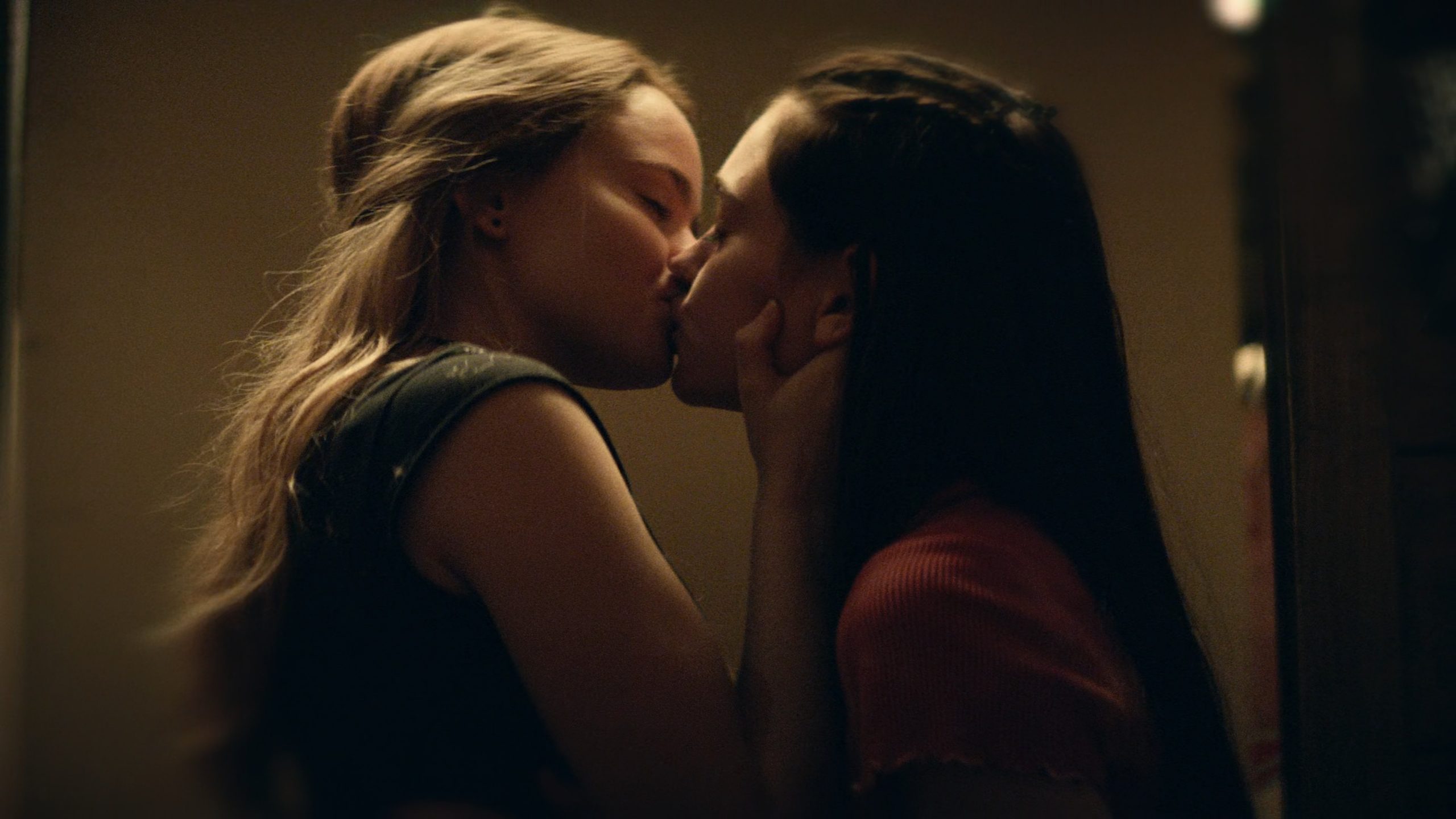'LITTLE FIRES EVERYWHERE': BURNING DOWN PRECONCEPTIONS
A review of Hulu's adaption of Celeste Ng's gripping novel
By Allegra Goodwin / 30 June 2020

Image from Hulu
This article contains spoilers
In its opening scene of the aftermath of a deliberate fire at the Richardson family’s Shaker Heights home, Little Fires Everywhere masquerades as just another TV mystery.
This backdrop to the drama quickly falls away, however: in its place is an intersectional, unrelenting critique of issues surrounding race, class, motherhood and sexuality, set in late 90s America but somehow diligently up to date at the same time.
Little Fires Everywhere is at its heart a story of two polar-opposite mothers: Elena Richardson (Reese Witherspoon), a suburban white mother at the helm of an American nuclear family, and Mia Warren (Kerry Washington), a Black working-class single mother who lives an itinerant life with her teenage daughter Pearl (Lexi Underwood). The plot is driven by the conflict that mounts between the two women, a conflict that is entrenched in Elena’s deep-seated racial bias, veiled thinly by her desperation to appear ‘not racist’. Elena, aggressively middle-class, exercises both her white and class privileges by renting out her spare property to the Warrens and then almost immediately asking Mia to be her ‘house manager’, which she translates to mean cooking and cleaning. Elena spends much of the first episode telling her husband what a good thing she’s doing for the Warrens, and it’s jarring just how wilfully ignorant she is to the uncomfortable dynamic of hiring her Black tenant in this capacity. As Mia angrily counters in episode 4 when Elena accuses her making poor choices on her daughter’s behalf and then insists that she would never make that disagreement about race, ‘you made this about race when you stood out there in the street and begged me to be your maid.’

Race is explored further in a subplot which covers the adoption of Chinese immigrant Bebe Chow’s (Huang Lu) one-year-old daughter, May Ling Chow, by a wealthy white couple, the McCulloughs.
This controversy stokes the fire between Elena and Mia, as Mia almost over-exerts herself by inserting herself into the struggle of Bebe, her colleague from the town’s Chinese restaurant where she works (the reason for which becomes clear in a later episode) and Elena defends her close friends the McCulloughs, to the extent of going to Bebe’s home to reach a financial settlement in exchange for the child. In a priceless moment in episode 4, Bebe asks Elena how much she would sell her own children for. The ethics of the McCulloughs taking Bebe’s child are questioned in the courtroom when Bebe’s lawyer asks Linda McCullough what steps she is taking to connect May Ling with her Chinese origins, and she stumbles over the fact that she served fortune cookies, a Japanese treat, at her first birthday, as a ‘cute nod’ to it. Linda’s trivialisation and reduction of May Ling’s heritage in this way helps to underpin the general attitude of the white characters who see themselves as ‘colour-blind’, all while they uphold unhelpful stereotypes about race. The true feelings of the town’s white residents are revealed as Mia listens to a tape about the history of Shaker Heights, on which an emotionless narrator tells her that once upon a time, white people in the town were provided with financial incentives to live amongst Black families.
Race, class and motherhood are expertly interwoven throughout the show, as the writers explore how class is ingrained in race, and how race in turn can make motherhood harder than it already is. Indeed, it is difficult for Elena, who never wanted a fourth child but, penned in by societal expectations that her own mother reminds her of, makes the decision not to get an abortion. It is these same restrictions that Elena reinforces in her microaggressions towards Mia and Bebe when she judges them as unfit mothers. The injustice of Elena having to give up on her journalism dreams due to the pressures of being a wife and mother, however, pale in contrast to Bebe’s acute privation in a flashback where she is shown to be 70 cents short of the money to buy formula for her crying daughter and is refused by the cashier. This scene is paralleled at the end of the same episode as Elena’s daughter Izzy (Megan Stott) is 70 cents short for the bus, and the driver tells her she can get on anyway.

One other issue that Little Fires Everywhere touches so thoughtfully on is that of the queer experience.
The characters of both Mia and Izzy were actually queered for the show, and this queering is effective as another way in which discriminations play out across the story. Co-executive director Liz Tigelaar has said that ‘it felt like it would be meaningful’ to explore coming-of-age queerness through the character of Izzy in a time more narrow-minded than our own. Throughout the show’s eight episodes, Elena is almost beside herself at the fact that Izzy won’t just ‘fit in.’ The conflict between Elena and Izzy becomes multi-layered with the revelation of Izzy’s transgression as it becomes impossible for Elena to ignore, eventually culminating in an argument in which she shouts ‘I never wanted you in the first place’ as her four children look on. Social ideas of queerness, however, are also subverted in the short-but-sweet love story between college-age Mia (Tiffany Boone) and her university lecturer Pauline Hawthorne (Anika Noni Rose) that forms one of the arcs of episode 6 ‘The Uncanny’. Boone has explained when interviewed that there is ‘a maternal element’ to the relationship between the two women. As Pauline says, when explaining the concept of ‘the uncanny’ to her students, it is something that is both familiar and unfamiliar. For Mia, the sense of a mother’s love is something that has at times been unfamiliar to her from her own mother, a religious and conservative woman, and somehow familiar from Pauline, who takes on a gentle and somewhat motherly role towards her.
To see a queer Black love story on our screens is extremely powerful, and there’s a real sense that the show is telling stories that would usually be left untold. Watchable while at the same time immensely jarring, Little Fires Everywhere is a must-see, and the comments it is making will stay with you long after the final episode.
Images from
Words by
Share this article

